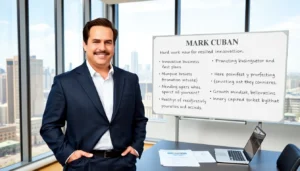Have you ever thought about diving into a masterclass but weren’t sure which topic would light a fire under your passion? Choosing the right masterclass topic is like picking the perfect avocado, do it right, and you’re golden: pick a bad one, and you’re left with disappointment (and possibly a bad guacamole). In this text, we’ll explore how selecting an engaging masterclass topic not only opens doors to deeper knowledge but also enhances your skillset, boosts your confidence, and maybe even makes you the go-to person on trivia night. So, grab a seat, and let’s unlock your potential together.
Table of Contents
ToggleThe Importance of Choosing the Right Masterclass Topic

Diving into a masterclass may seem straightforward, but picking the right topic can be a game-changer. The topic you choose isn’t just what you’ll be learning: it’s about aligning your interests with your goals. A well-chosen theme captivates your audience and keeps them coming back for more. Not to mention, it feels good to be passionate about what you’re teaching. Remember, the right topic can ignite not just your enthusiasm but that of your participants, creating a dynamic learning environment.
Think about it: would you rather listen to a lecture on tax codes or a session on gourmet cooking? The latter definitely sounds more appetizing. The right topic can create waves of enthusiasm, motivating people to engage deeply and return for more classes.
Popular Masterclass Themes and Subjects
When it comes to popular masterclass themes, the options seem endless. Here are a few high-interest subjects that consistently draw enthusiasm:
- Culinary Arts: From baking bread to mastering sushi, culinary classes offer practical skills and a chance to impress friends at dinner parties.
- Creative Writing: This theme allows participants to unleash their inner Shakespeare, explore storytelling, and hone their craft.
- Photography: Given the rise of social media, photography classes teach not just technical skills, but also creative vision.
- Business Development: Topics under this umbrella cover everything from entrepreneurship to marketing strategies, often featuring top-tier instructors.
These subjects have captivated audiences for years, illustrating how powerful content can be when it lands in the right hands.
How to Identify Your Interests and Strengths
Identifying interests and strengths isn’t just a topic for self-help books. It’s crucial when shaping your masterclass. Start by asking yourself what you enjoy most. Do you love doodling in the margins while binge-watching your favorite show? Perhaps art might be your calling.
Next, consider your strengths. If you can whip up a gourmet meal out of ten random ingredients, you might want to share your culinary expertise. Don’t overlook the value of feedback from friends or family, they can often spot your hidden talents better than you can. If you’ve ever been told, “Wow, you should teach this.” that’s a strong indicator you’ve stumbled upon a potential topic.
Crafting a Unique Masterclass Experience
Crafting a unique masterclass experience goes beyond picking a topic. It’s about presenting your knowledge in a way that resonates with your audience. Here’s how:
Strategies for Engaging Your Audience
Engagement is key. Use storytelling to illustrate points, everyone loves a good story. Poll your audience for their thoughts and help discussions. This keeps energy high and makes everyone feel involved.
Utilizing Multimedia in Your Masterclass
Harness the power of multimedia. Incorporate videos, slideshows, or even live demonstrations to make your class immersive. The more senses you activate, the better the experience. Think about how much more memorable a lesson on painting is when you can see live strokes of the brush, rather than just watching slides.
Measuring Success and Gathering Feedback
Once the class wraps up, measuring success is essential. But how do you know if your masterclass hit the mark? Start by gathering feedback through surveys. Ask participants what they enjoyed and what they found lacking. Use this information to adjust and improve future classes.
Don’t hesitate to share testimonials from satisfied participants, as they add credibility to your offerings. Eventually, feedback isn’t just about patting yourself on the back: it’s about honing your craft. Remember, even the best chefs refine their recipes based on taste tests.



